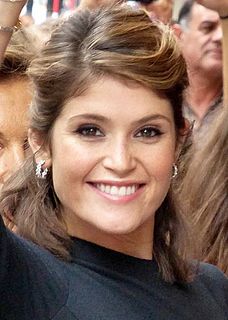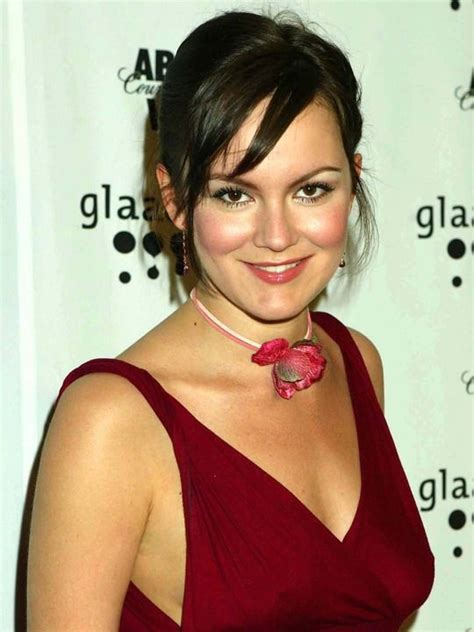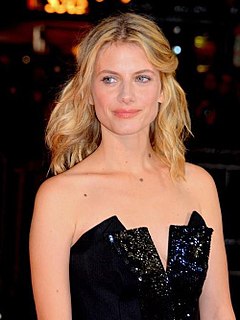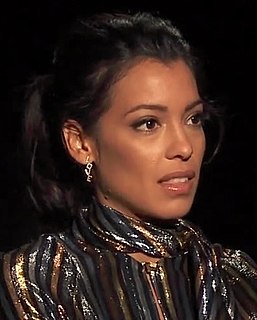A Quote by Gemma Arterton
It's a surreal thing because you are there and made up and dressed up as if you're making the film. You do the scene, which is going to be in the film, and I met him [Daniel Craig] and I'm working with the director, and so it is different to just a normal audition.
Related Quotes
There is one scene where he is kissing up my back. It is really sexy and I didn't know he was going to do it. He started doing it and in the film you see me saying, whew, and that wasn't acting, that was really me thinking, whew, oh my goodness Daniel Craig is kissing my back! I really did. I had to stop and remind myself that I was playing a character and I was acting in a film.
See, the first thing about actors is, you're just trying to get a job; and you audition and audition and you finally get them. And you still consider yourself an auditioning actor. I auditioned for One Fine Day, I wasn't offered that. So you're still in that 'Hey, I'm just trying to get a job' thing. Then, you get to the point where, if you decide to do it, then they'll make the film. That's a different kind of responsibility, and it usually takes a couple of films to catch up. And then you have to actually pay attention to the kind of films that you're making.
Film and television are very different. On the TV show, we do seven or eight scenes a day, so time and money are of the essence, and we have zero room for creativity because you've got to do each scene in only five takes. Whereas, on a film, you have an entire day to film one scene, so you have so much time to choose how you want to fill in a scene.
Film’s thought of as a director’s medium because the director creates the end product that appears on the screen. It’s that stupid auteur theory again, that the director is the author of the film. But what does the director shoot-the telephone book? Writers became much more important when sound came in, but they’ve had to put up a valiant fight to get the credit they deserve.
There was a period that black film had no chance of making it in Hollywood. So, people just made the made the statements that they wanted to make. Whether it was a science fiction film or whatever, b/c they were just making movie for themselves. Then there was a period where people were creating projects as their Hollywood audition 'pieces'. I feel that today we are moving back to the era where we all have our own voices.
You know, in an ideal world, people would just be intrigued and go and see a film without knowing anything about it, because that's where you're going to have the most experience of a film, the biggest, the most revelation of a film. But at the same time, I think there are benefits of having seen a trailer where you actually look forward to seeing moments in a film knowing that they're coming up. I don't know which is better.
Well, there's two things I have criteria for doing a film: The script, which is the story, and the filmmaker, and it's a filmmaker's medium. I like really strong directors, and so when I do a film, I'm out there to serve the director, really, which is in turn to serve the script, to serve the director cause he's the one making the film. I relied on Todd Haynes for that.



































